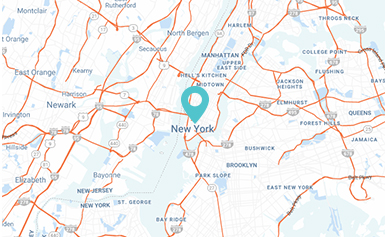Chad – Gerewol Festival
/ per person
(0 Reviews)
• An opportunity to witness a unique and truly off the beaten track cultural festival
• Get immersed in the local traditions of the Gerewol Festival
• Spectacular dress and personal decoration of the Mbororo people
• Camp wild in the Sahel
• Visit the market of Durbali, one of the most important in the Sahel
Tour Plan
1
Itinerary: Day 1 – N’Djamena
Arrive in N’Djamena and transfer to the hotel. If your arrival is early morning then you will be able to check in to your room straight away. Overnight Mercure Hotel or similar.
N’Djamena
Chad’s capital sits on the Chari River, opposite the Cameroonian town of Kousseri on the western bank. It’s a relatively recent creation, having been founded in 1900 by the French and originally named Fort Lamy after an officer who had recently been killed ‘pacifying’ the region. It’s quite a spread out city, with wide boulevards which are unfortunately now mainly devoid of the trees that they once sported, these having been chopped down to remove cover for rebel forces during the city’s turbulent past. There are few specific sights in the city, but if you’re arriving early or staying on after the tour you might want to have a wander through the central market, which is quite interesting.
2
Day 2 Durbali
We drive to the region of Durbali, through the Sahel, to join the Mbororo people in their celebration of the Gerewol festival. Overnight camping. (BLD)
Mbororo People
The Mbororo belong to the Fulani ethnic group (a distinction typically being made between the Mbororo and the Peul, who tend to live more settled lives), and are traditionally nomadic cattle-herders and traders in the Sahel, migrating between Chad, southern Niger, through northern Nigeria, north-eastern Cameroon, and the western region of the Central African Republic. Their lives are centred on the herds of long-horned Zebu cattle, and they migrate according to the seasons to find pasture. Groups of several dozen relatives, typically several brothers with their wives, children and elders, travel on foot, donkey or camel, and stay at each grazing spot for a couple of days. The Mbororo are very traditional; women plait their hair and often wear silver coins or discs into their hair, and sometimes have tattooed faces. The code of behaviour of the Mbororo emphasizes reserve and modesty (semteende), patience and fortitude (munyal), care and forethought (hakkilo), and loyalty (amana). They also place great emphasis on beauty and charm. Parents are not allowed to talk directly to their two first born children, who will often be cared for by their grandparents. During daylight, husband and wife cannot hold hands or speak in a personal manner with each other.
The Mbororo are largely but loosely Islamic. Although there are varying degrees of orthodoxy exhibited, most adhere to at least some of the basic requirements of the religion. Islam became important among Mbororo peoples during the 16th century when the scholar al-Maghili preached the teachings of Muhammad to the elite of northern Nigeria. Al-Maghili was responsible for converting the ruling classes among Hausa, Fulani, and Tuareg peoples in the region.
3
Days 3-7 Gerewol Festival
We spend these days immersing ourselves in the culture of the Mbororo and witnessing the rituals and ceremonies of the Gerewol festival. This is one of Africa’s most fascinating cultural encounters, unchanged for centuries and with very few traces of modernity. We can expect to see traditional singing and dancing, and perhaps some camel racing. Young Mbororo men decorate themselves with makeup, feathers and traditional jewellery to display to young women; the Gerewol is an elaborate mass courtship ritual and a fascinating spectacle to watch. As well as this we can explore the market of Durbali, one of the most important in the Sahel, and spend time with local people, learning about all aspects of their unique culture. Overnight camping. (BLD)
The Gerewol Festival
Every year, after the rainy season, the Bororo people meet in specific areas of the Sahel, straddling Niger, Chad and Cameroon, to celebrate. In a rather privileged region, with salted grazing grounds, Bororos settle down together with their herds both to treat them with salt and against parasites - la cure salee - and in order to organise important tribal gatherings. This feast is actually one of the few opportunities for these people, which are scattered over a large territory, to meet. While the animals are treated, the men devote their time to show off and celebrate. This is a crucial time to exchange news, make friends, and for love affairs. Bororos are in fact polygamous and only the very first marriage is fixed by the family according to tradition, while during the Gerewol festivals men and women can embark upon casual affairs to which no stigma is attached or develop stable relationships. In Bororo culture it is male beauty that is prized more highly, and young men will decorate themselves in their finest clothes and with elaborate make up in order to attract a partner.
4
Day 8 N’Djamena
We return back to N’Djamena, where day use rooms are available to freshen up. After heading out to a restaurant for a final farewell dinner, transfer to the airport for your onward flight home.
Important: Please note that the exact date of this festival is usually determined around June each year, when the Mbororo elders have decided upon the best time to hold it. The Gerewol festival is held around the end of September (at the end of the rainy season) and so the precise date of this trip may move by a couple of days either side. You should not book flights until this date has been confirmed by us.
5
Tour Location
Gallery



